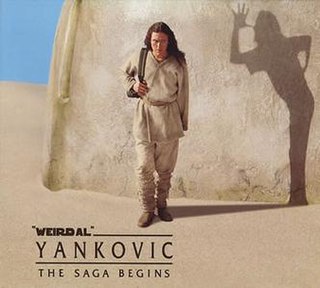Related Research Articles
"Take Me Out to the Ball Game" is a 1908 Tin Pan Alley song by Jack Norworth and Albert Von Tilzer which has become the unofficial anthem of North American baseball, although neither of its authors had attended a game before writing the song. The song's chorus is traditionally sung as part of the seventh-inning stretch of a baseball game. Fans are generally encouraged to sing along, and at some ballparks, the words "home team" are replaced with the team name.

Universal Music Group N.V. is a Dutch–American multinational music corporation under Dutch law. UMG's corporate headquarters are located in Hilversum, Netherlands and its operational headquarters are located in Santa Monica, California. The biggest music company in the world, it is one of the "Big Three" record labels, along with Sony Music Group and Warner Music Group. Tencent acquired ten percent of Universal Music Group in March 2020 for €3 billion and acquired an additional ten percent stake in January 2021. Pershing Square Holdings later acquired ten percent of UMG prior to its IPO on the Euronext Amsterdam stock exchange. The company went public on September 21, 2021, at a valuation of €46 billion.

"This Land Is Your Land" is a song by American folk singer Woody Guthrie. One of the United States' most famous folk songs, its lyrics were written in 1940 in critical response to Irving Berlin's "God Bless America". Its melody is based on a Carter Family tune called "When the World's on Fire". When Guthrie was tired of hearing Kate Smith sing "God Bless America" on the radio in the late 1930s, he sarcastically called his song "God Blessed America for Me" before renaming it "This Land Is Your Land".

John Charles Waite is a British rock singer and musician. As a solo artist, he has released ten studio albums and is best known for the 1984 hit single "Missing You", which reached No. 1 on the US Billboard Hot 100 and the top ten on the UK Singles Chart. He was also the lead vocalist for the successful rock bands The Babys and Bad English.

"Total Eclipse of the Heart" is the lead single by Welsh singer Bonnie Tyler from her fifth studio album, Faster Than the Speed of Night (1983) written and produced by Jim Steinman and recorded in 1982, released as a single by CBS/Columbia in 1983.

FM Static was a Canadian Christian pop punk duo based in Toronto, Ontario. The band was formed in 2003 as a side project for Thousand Foot Krutch. The band consisted of Trevor McNevan and Steve Augustine. The original lineup included John Bunner on guitar and Justin Smith on bass. The band released four studio albums, most recently My Brain Says Stop, But My Heart Says Go! (2011).

"The Saga Begins" is a parody song by "Weird Al" Yankovic. It parodies "American Pie" by Don McLean, with lyrics that humorously summarize the plot of the film Star Wars: Episode I – The Phantom Menace through the point of view of Obi-Wan Kenobi, one of the film's protagonists.
Caledonia is a modern Scottish folk ballad written by Dougie MacLean in 1977. The chorus of the song features the lyric "Caledonia, you're calling me, and now I'm going home", the term "Caledonia" itself being a Latin word for Scotland. "Caledonia" has been covered by various artists, and is often dubbed Scotland's "unofficial national anthem".
Vevo LLC is an American multinational video hosting service, best known for providing music videos to YouTube. The service is also available as an app on selected smart TVs, digital video recorders, digital media players and streaming television services. The service once offered a consumer mobile and tablet app; however this was shut down in May 2018 to allow the service to focus on its other platforms.

"Full Steam" was the second single taken from David Gray's eighth studio album Draw the Line. The song is a duet between Gray and Annie Lennox. Originally planned to be officially released as a single on 23 November 2009, the single release was delayed with a new release date set as 28 December 2009, although no singles were to be found at such date. A music video featuring Gray and Lennox was filmed for the song, as it was eventually only released as a download single with all proceeds from the sale of the single going to Children in Need. Only physical single releases were for promotional releases only.
"Newport (Ymerodraeth State of Mind)" is a parody version of the 2009 "Empire State of Mind" by Jay-Z and Alicia Keys. Recorded by singer Teresa Wainwright and rapper Alex Warren, the 2010 music video was directed by MJ Delaney. The word "ymerodraeth" means "empire" in Welsh. The song features extensive references to the city of Newport in South Wales.
"Stephen" is a song by American recording artist and songwriter Kesha, taken from her debut studio album, Animal (2010). The song was written by Kesha in collaboration with David Gamson, Pebe Sebert, and Oliver Leiber. It was produced by Gamson with additional production by Leiber. The song's instrumentation was by Gamson, with the exception of the accordion, which was played by Kesha. Kesha wrote the song about a boy that she had been stalking and who had refused to call the singer.
"You Can't Blame the Train" is a song written by American singer-songwriter Terri Sharp. The original version was recorded by American singer-songwriter Don McLean in 1987 and family country group The Hollanders recorded their own version in 1991.

"I Hear You Calling Me" is a British popular song published in London in 1908 by Boosey & Co. The lyrics were by Harold Lake and the music by Charles Marshall (1857-1957). The song became a signature song for the tenor John McCormack.

UMG Recordings, Inc. v. Shelter Capital Partners LLC, 667 F.3d 1022 No. 09-55902, was a United States Court of Appeals for the Ninth Circuit case in which UMG sued video-sharing website Veoh, alleging that Veoh committed copyright infringement by hosting user-uploaded videos copyrighted by UMG. The Ninth Circuit upheld the decision of the United States District Court for the Central District of California that Veoh is protected under the Digital Millennium Copyright Act's safe harbor provisions. It was established that service providers are "entitled to broad protection against copyright infringement liability so long as they diligently remove infringing material upon notice of infringement".
YouTube copyright issues relate to how the Google-owned site implements its protection methods. The systems are designed to protect the exclusivity of a given creator and owner and the rights to reproduce their work. YouTube uses automated measures such as copyright strikes, Content ID and Copyright Verification Program. These methods have been criticized for favoring companies and their use of copyright claims to limit usage of uploaded content.
Content ID is a digital fingerprinting system developed by Google which is used to easily identify and manage copyrighted content on YouTube. Videos uploaded to YouTube are compared against audio and video files registered with Content ID by content owners, looking for any matches. Content owners have the choice to have matching content blocked or to monetize it. The system began to be implemented around 2007. By 2016, it had cost $60 million to develop and led to around $2 billion in payments to copyright holders. By 2018, Google had invested at least $100 million into the system.

"Heart on My Sleeve" is a song written and produced by TikTok user Ghostwriter977, with vocals made to sound like Canadian musicians Drake and The Weeknd through the use of artificial intelligence (AI). The song was self-released on April 4, 2023, on various streaming platforms like Apple Music, Spotify and YouTube.
References
- ↑ Greenblatt, Leah (2009-05-28). "New literal video: "Total Eclipse of the Heart"". The Music Mix Blog. Entertainment Weekly. Retrieved 2009-05-31.
- 1 2 3 Weeks, Jerome (2008-11-03). "Literal-minded". book/daddy. ArtsJournal. Retrieved 2009-05-31.
- ↑ Bosso, Joe (2008-10-20). "Hot video: U2's I Still Haven't Found What I'm Looking For - literal version". Music Radar . Retrieved 2009-08-02.
- ↑ Suddath, Claire (2008-10-28). "Tears for Fears: The Literal Remix". Time . Archived from the original on November 16, 2008. Retrieved 2009-06-06.
- ↑ Mccarthy, Caroline (2009-07-29). "The top 10 songs the Web brought back". CNet . Retrieved 2009-08-02.
- ↑ Fussell, James (2009-07-28). "Literal version videos rack up views on the Web for classic hits". Kansas City Star . Archived from the original on August 22, 2009. Retrieved 2009-08-02.
- ↑ "A-Ha get the internet remix treatment". Entertainme. Excite UK. 2009-10-08. Retrieved 2009-05-31.
- 1 2 Ganz, Caryn (2008-10-06). "Rocking Literally: The Story Behind "Take on Me," "Head Over Heels" Video Parodies". Rolling Stone . Retrieved 2011-03-26.
- ↑ Popkin, Helen A.S. (2008-10-06). "YouTube satire is 'literally' hilarious". NBC News . Retrieved 2009-06-13.[ dead link ]
- ↑ "Rick Roll: The Literal Version". YouTube. 2008-10-17. Archived from the original on 2021-12-20. Retrieved 2008-10-17.
- ↑ Laderman, David and Westrup, Laurel. Sampling Media , p. 230 (Oxford University Press, 2014).
- ↑ Scott, David (2009-05-25). "Total Eclipse of the Heart: Literal Video Version". YouTube. Retrieved 2009-05-25.
- ↑ Scott, David (2011-04-16). "Total Eclipse of the Heart: Literal Video Version" . Retrieved 2012-07-01.
- ↑ McLean, Dustin (2008-12-12). "Dust Films (official website)". Dust Films. Retrieved 2008-12-12.
- ↑ Scott, David (2009-08-24). "Total Eclipse Literal Video: Various News Clips". YouTube. Retrieved 2009-08-24.[ dead YouTube link ]
- ↑ Meeks, Torrey (2009-08-24). "Torrey Meeks (official site)". Torrey Meeks. Archived from the original on 2016-03-03. Retrieved 2009-08-24.
- ↑ Fioraliso, Ted (2009-08-26). "Literal Video Unbanned". Facebook. Archived from the original on 2011-07-17. Retrieved 2009-08-26.
- ↑ Scott, David (2009-08-29). "Total Eclipse Literal Video: UNBANNED". YouTube. Retrieved 2009-08-29.[ dead YouTube link ]
- ↑ Kennison, James (2009-07-28). "Dustin McLean, Literal Video Mastermind". Wall Street Journal. Retrieved 2009-10-19.
- ↑ "- YouTube". YouTube .
- ↑ "Unauthorized Access".
- ↑ "Unauthorized Access". 20 August 2018.
- ↑ Schmidt, Bryan (2009-06-16). "Glee Club of the Damned". Facebook. Retrieved 2009-06-16.
- ↑ Scott, David (2009-06-09). "Total Eclipse Literal Video on CNN's AC360". YouTube. Retrieved 2009-06-09.[ dead YouTube link ]
- ↑ "The Top 10 Viral Videos of 2009". Time magazine . Archived from the original on January 2, 2010. Retrieved August 17, 2010.
- ↑ "14th Annual Webby Awards Official Honoree Selections - Viral Online Film & Video". Webby Awards. April 2010. Archived from the original on 2011-08-06. Retrieved 2010-05-10.
- ↑ "Great Moments in Web Comedy". TIME . July 2010. Archived from the original on August 2, 2010. Retrieved 2010-08-03.
- ↑ Scott, David (2009-03-02). "World Where You Live: Literal Video Version". YouTube. Retrieved 2009-03-02.[ dead YouTube link ]
- ↑ Hansen, Beck (2009-08-09). "Beck (Official Website)". XL Recordings. Archived from the original on 2009-08-06. Retrieved 2009-08-09.
- ↑ Kreps, Daniel (2010-03-14). "The Secret History of A-ha's Smash Take On Me". Rolling Stone. Retrieved 2011-03-26.
- ↑ Kid, Le (2010-05-20). "Mercy Mercy LITERAL". YouTube. Archived from the original on 2021-12-20. Retrieved 2010-08-03.
- ↑ Hasselhoff, David (2010-07-29). "You've Never Seen "Hooked on a Feeling" Like This!". HoffSpace. Retrieved 2010-08-03.
- ↑ Gantvoort, Leif (2010-08-03). ""Right Kind of Love" Music Video (Literal Version)". YouTube. Archived from the original on 2021-12-20. Retrieved 2010-08-13.
- ↑ Mister, Mr. (2011-04-19). ""Kyrie: Literal Video Version" (Google cache)". YouTube. Archived from the original on 2021-02-02. Retrieved 2011-04-19.
- ↑ "Bonnie Tyler: 'There's nothing I won't talk about'". The Irish Times .